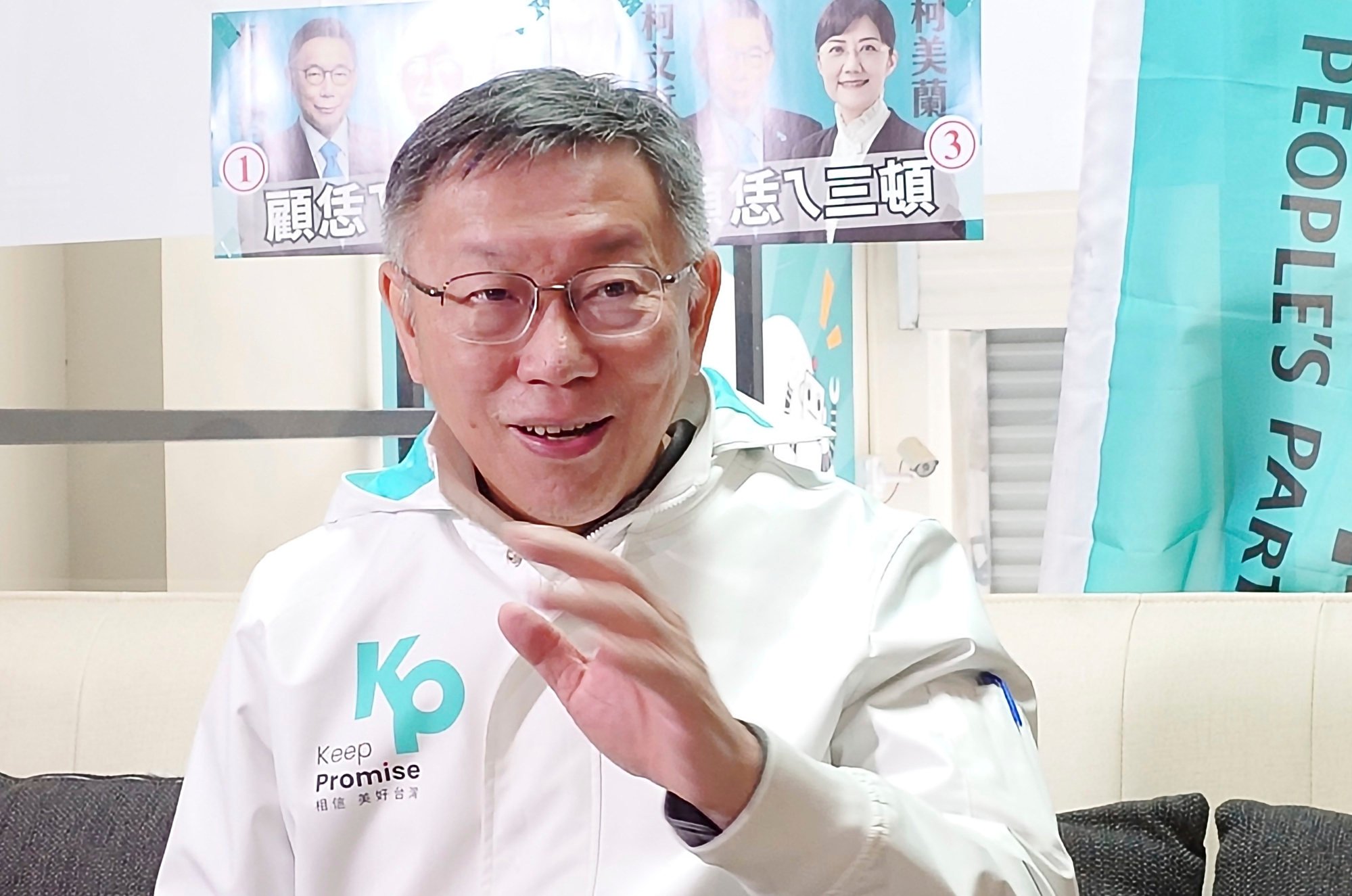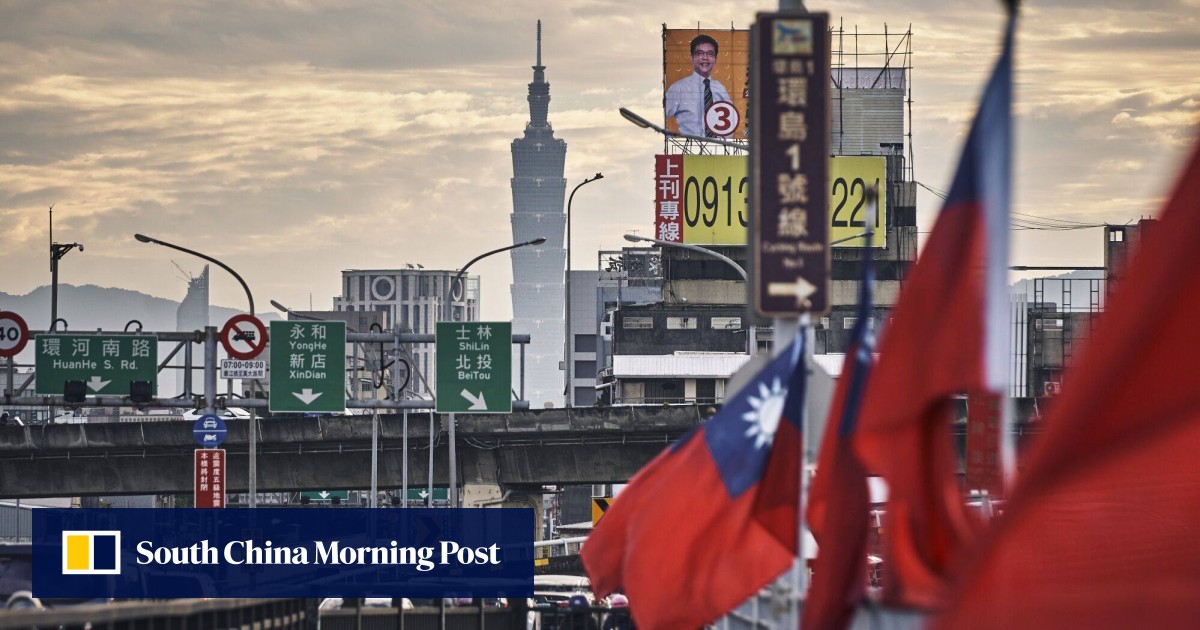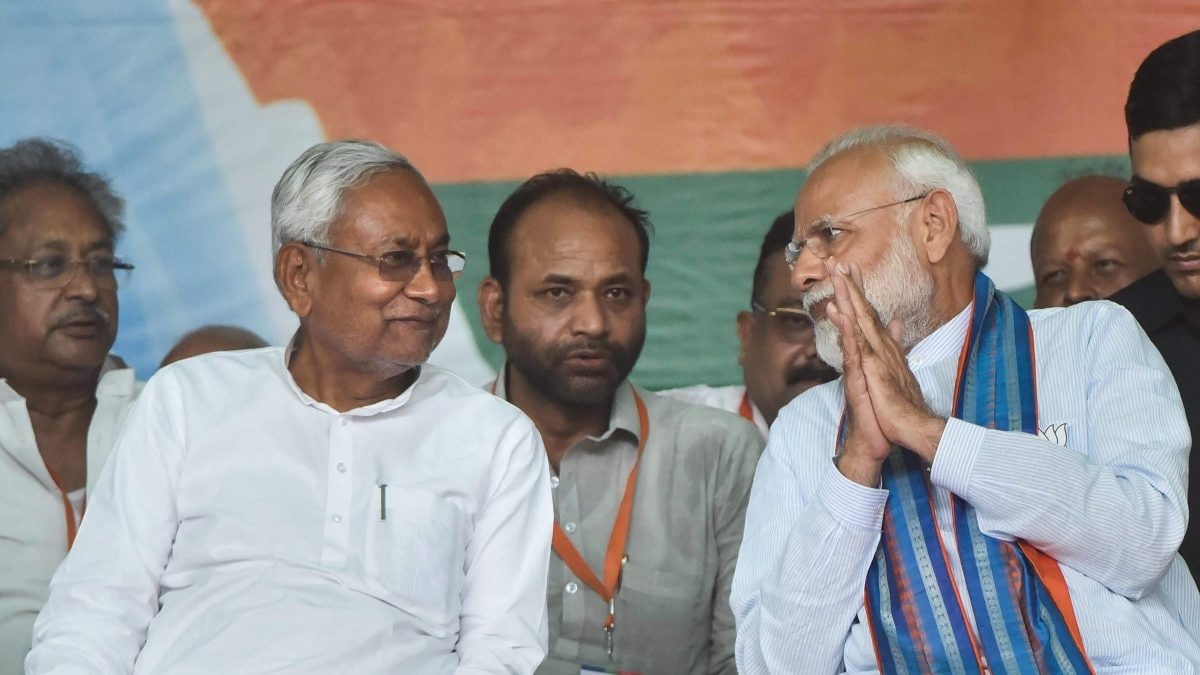“In the next couple of years, I won’t be in Taiwan – I’ll be in the US. So that means if there’s any kind of political campaign or activism needed here, I cannot be here,” Dai said.
“So I feel like it is my responsibility to come back here and vote in the presidential election just to ensure we can pick a more adequate candidate that can keep Taiwan in a firm political position.”
Dai plans to vote for William Lai Ching-te, the current vice-president and Democratic Progressive Party (DPP) candidate.
As a student at National Taiwan University, Dai took part in the Sunflower Movement, a 2014 protest against a free-trade agreement with mainland China. She says her biggest concern now is the possibility of further mainland influence in Taiwan, as military tensions escalate.
“I’m very worried that if we pick a pro-China president for the next four years, it’s probably easier for the PRC to try to take over or try to immerse their culture or power into our society and our government,” she said.
Beijing sees Taiwan as part of China, to be eventually reunited with the mainland – by force if necessary. Most countries, including the US, do not see Taiwan as an independent state but are opposed to any attempt to take the island by force, and the US is obliged by its laws to arm Taiwan.
Unlike most other democracies, Taiwan does not allow absentee voting, a barrier that has been debated for years. That means travel – domestic or international – is a tradition during Taiwan’s elections as citizens must “return home to vote” to their place of household registration.
Who is running in Taiwan’s presidential race and what does it mean for Beijing?
Who is running in Taiwan’s presidential race and what does it mean for Beijing?
Little is known about overseas Taiwanese voting patterns or how influential their votes are. According to the Central Election Commission, just over 4,000 of them have successfully registered to vote in next weekend’s presidential election, though it is unclear if that number reflects the full scope of overseas Taiwanese voters.
That number is also lower than the last presidential poll in 2020, when over 5,000 were recorded as having registered, but it is higher than in 2016.
Lev Nachman, a political scientist at National Chengchi University in Taipei, said this election may not have the same pull as last time for overseas voters.
“The two presidential candidates from KMT and DPP do not have the same inspirational weight as the Tsai Ing-wen versus Han Kuo-yu battle [of 2020],” Nachman said.
“There was something particular about Tsai versus Han – especially in the context of Hong Kong – that inspired people to come back to vote.”
Diaspora voters in the US seem to be more likely to fall along traditional party lines than voters still living in Taiwan, according to Michelle Kuo, a visiting law professor at National Taiwan University.
She said the entrance of Ko Wen-je, chairman of the Taiwan People’s Party, to the race had created new divides, especially among young people, that went beyond traditional identification as Taiwanese versus Chinese.

In the decade since the Sunflower Movement, and especially in the last four years, “calling yourself Taiwanese has lost its political meaning and its subversive edge”, Kuo said. Before, self-identification as Taiwanese “signalled someone would not vote for the KMT, but that’s no longer the case”.
Taiwan’s political parties see the importance of the overseas voter base. Numerous diaspora organisations in the US, whether directly affiliated with a party or not, mobilise eligible Taiwanese to return home to vote in each election. Some coordinate well-organised campaigns and help voters arrange flights and hotels. All of the candidates spent part of their US visits last year meeting members of the Taiwanese diaspora at banquets or other events.
Taiwanese media also reported that the Association of Taiwanese Enterprises on the Mainland worked with 10 airlines to organise discounted flight tickets to Taiwan in a special promotion for the elections. Taiwan’s Economic Democracy Union think tank called the association an operation of Beijing’s United Front Work Department and said the move should be investigated as election interference.
Nachman said the move was certainly an attempt to influence Taiwanese to vote a certain way, but that it differed from voter mobilisation in other parts of the world.
“In the US, both sides of the political spectrum can advocate for who they want to vote for. In the PRC you cannot advocate you want to vote for the DPP,” he said.

Taiwanese voters returning from the United States said this year’s polls felt particularly monumental as tensions continued to rise in the Taiwan Strait. Regardless of political preference, they said Taiwan needed a leader who could protect its rights and interests while preventing possible conflict.
Paul, a 65-year-old retired Californian with dual Taiwanese and US citizenship, has been living in the United States for more than three decades. Now an active member of his church, he makes regular trips back to Taiwan for work and religious visits – and always for elections.
Beijing’s policies are a concern for Paul, a long-time KMT voter, who says returning to vote in Taiwan is an important part of showing the success of its democracy.
“That Chinese people can govern themselves and have freedom and democracy and economy, prosperity, this goes against the propaganda of China that China always, forever, needs one party to rule, you know, because Chinese people don’t know how to rule themselves,” he said.
Taiwan elections: Beijing accuses DPP of ‘hyping’ PLA threat to win votes
Taiwan elections: Beijing accuses DPP of ‘hyping’ PLA threat to win votes
But like many Taiwanese, Paul has become fatigued with the island’s green-blue party politics. He said the KMT had “lost their backbone to stand against communism” while the DPP was too progressive. “The corruption is even worse than the Kuomintang,” he said. “So in Taiwan, I am caught in between.”
He has yet to decide who to vote for but said he was leaning towards Ko, who claims his politics go “beyond green and blue” but tends to skew pan-blue.
Paul said Ko reminded him of Donald Trump, who he voted for in 2016 and 2020 and plans to vote for again in 2024.
“Just like the United States, people are being played around between these two parties and promised so many things but nobody delivers,” he said. “They really want a leader who is not owned by any interest, any party. I think that’s the key.”







